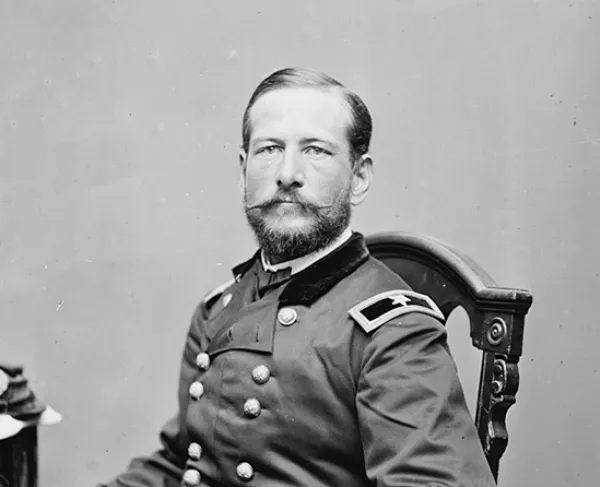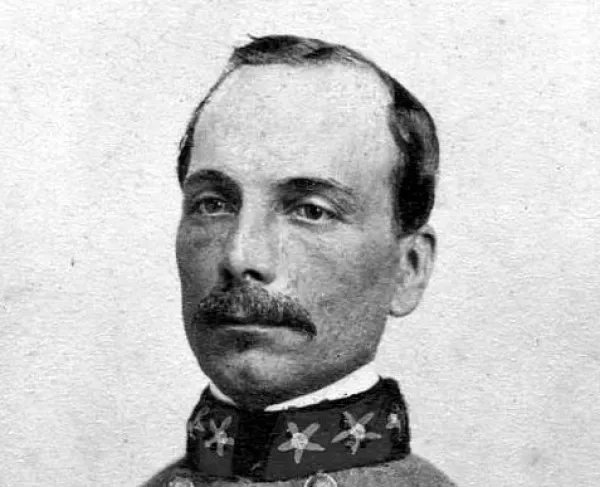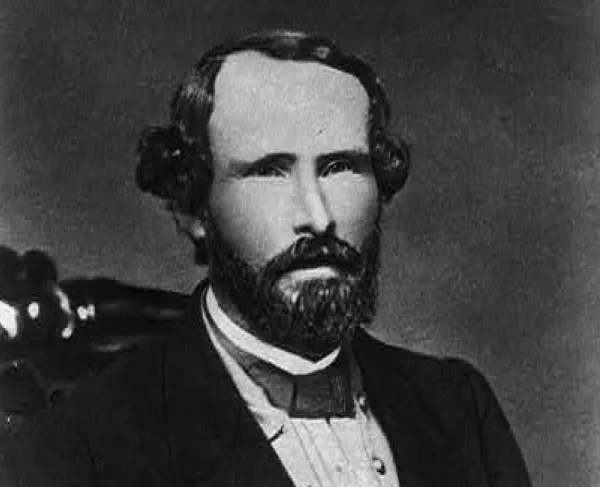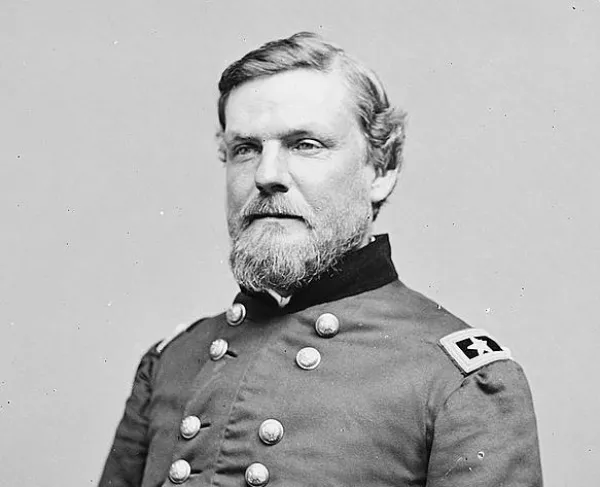Alfred Pleasonton

Alfred Pleasonton received an appointment to the United States Military Academy in 1840, and graduated seventh in a class of 25 in 1844. He served during the Mexican-American War, and received a brevet promotion to first lieutenant for gallantry at the battle of Palo Alto. After the war, Pleasonton served in Florida and was engaged against the Seminole Indians with the 2nd Dragoons.
At the outbreak of the Civil War, Pleasonton commanded his regiment while they moved from Utah to Washington DC. He served for some time within the defenses of Washington, and received a promotion to major on February 15, 1862. After his promotion, he served through the Peninsula Campaign, which resulted in a promotion to brigadier general on July 16, 1862. He led a division of the Cavalry Corps of the Army of the Potomac during the battles of Antietam, Fredericksburg, and Chancellorsville. At the battle of Chancellorsville, Pleasonton claimed that he had in fact saved the Union army during the fight, even though it can not be substantiated. Regardless, he was promoted to major general on June 22, 1863, and was placed in command of the Cavalry Corps by order of General Joseph Hooker. A month after his promotion, Pleasonton led the Cavalry Corps against Confederate cavalry under J.E.B. Stuart during the battle of Brandy Station, which was the largest cavalry battle of the Civil War. Although Pleasonton and his men were able to fight J.E.B. Stuart to a standstill, he did not distinguish himself for the rest of the Gettysburg Campaign.
In February of 1864, Pleasonton approved of a raid by cavalry on Richmond, known as the Kilpatrick-Dahlgren raid. The raid proved to be very unsuccessful, and Pleasonton was relieved of command of the Cavalry Corps and sent west to the Department of Missouri under the command of William Rosecrans. In October of 1864, Pleasonton defeated Confederate general Sterling Price during the invasion of Missouri, and performed well during the battle of Westport. For his actions, Pleasonton received a brevet promotion to major general, though he remained a major in the regular army.





